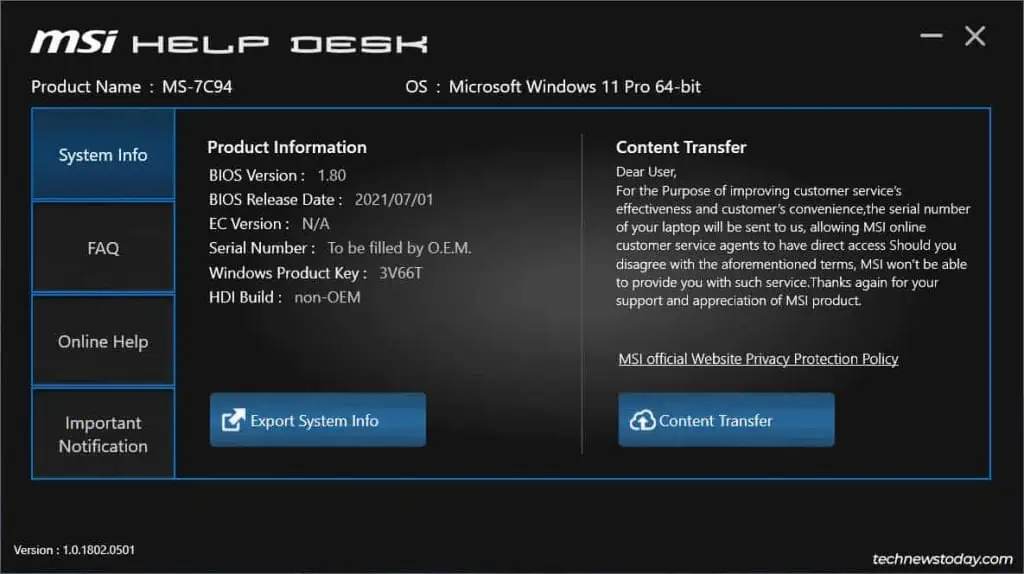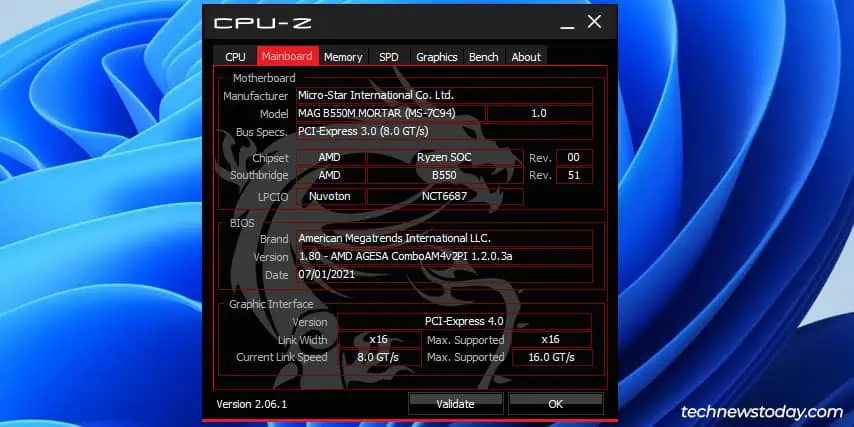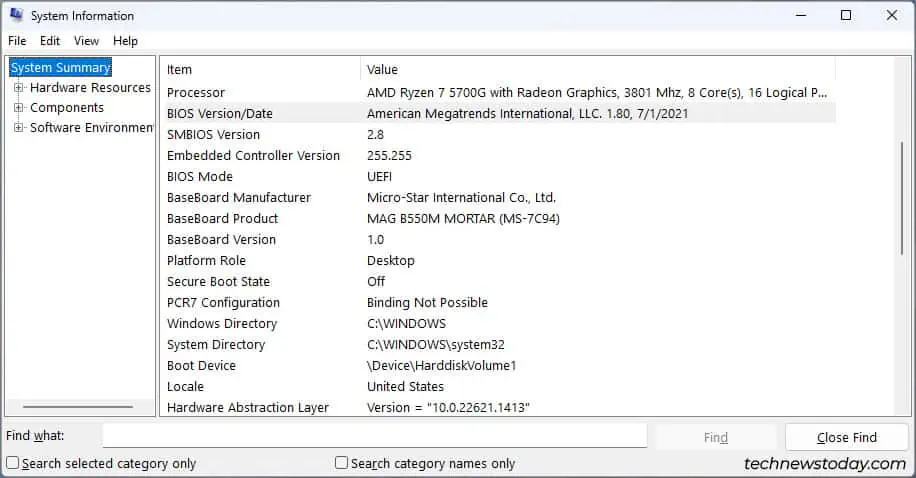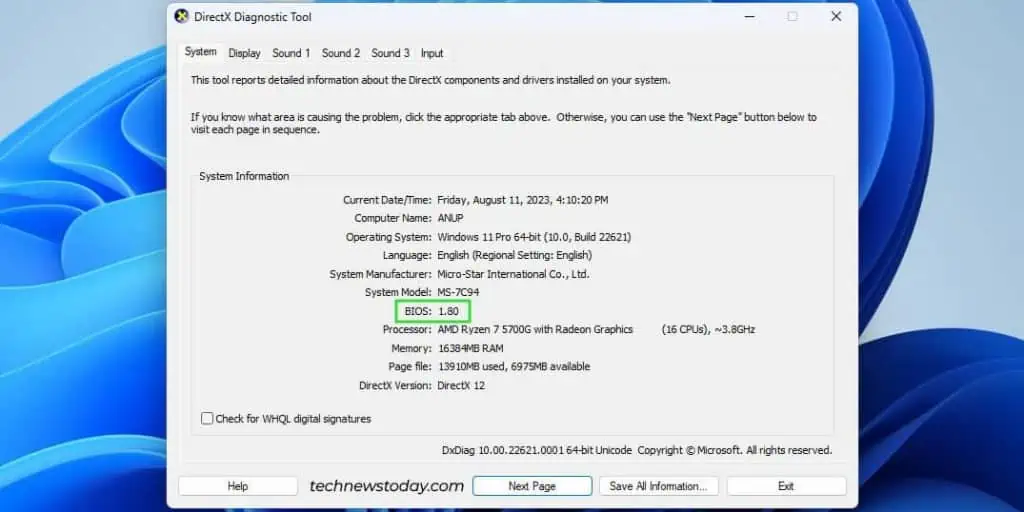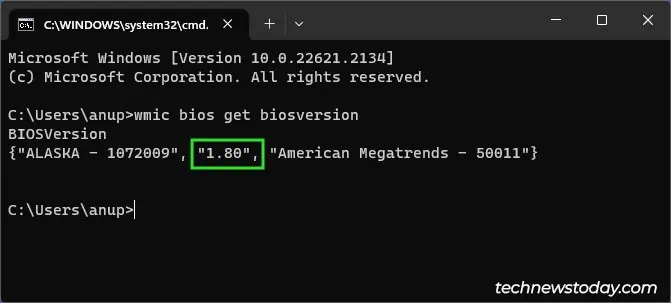As MSI boards don’t ship with a BIOS sticker, a lot of people get confused as to what BIOS version is installed on their new board. This can be an issue if your processor is only supported with a recent BIOS version.
For this specific case, you may try the processor with the stock BIOS without checking the BIOS version. If it doesn’t work, you can flash a newer BIOS version withUSB BIOS Flashback, or use an older processor.
If you’re trying to find the BIOS version on a functioning system, you may do sofrom the MSI BIOS. You can also check it with programs likeMSI Center, or Windows utilities like theSystem Infoapplet.
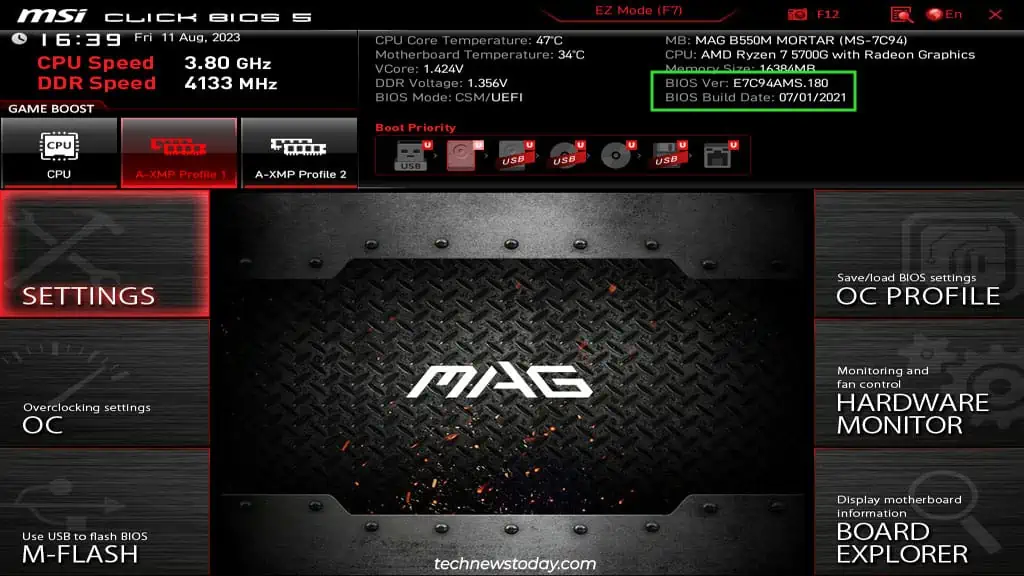
Power on your PC and repeatedly pressDel/F2toenter the MSI BIOS. The BIOS version (last three digits) and build date will be displayed on the main page here.
If Fast Boot or something else is preventing the BIOS key from working, then you may access the BIOS from therecovery environment (WinRE)instead.
To use this method, utilize the Restart button to reboot your PC three times in a row. Once you get to WinRE, selectTroubleshoot>Advanced Options>UEFI Firmware Settings.
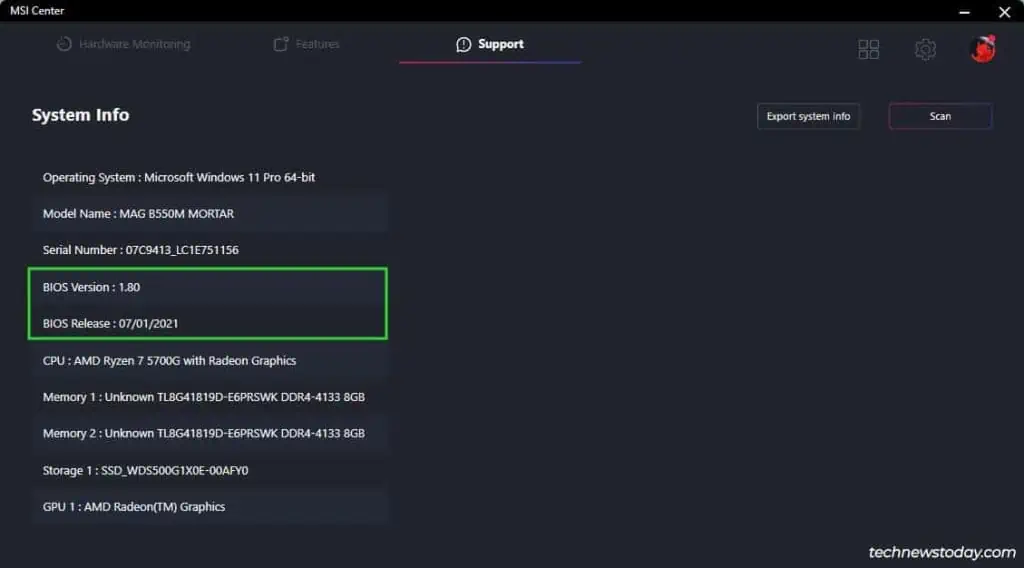
Check BIOS Version in MSI Apps
If you use any MSI Utilities likeMSI Dragon Center, you may check the current BIOS version from those apps.
On that note, you may also find the BIOS version through third-party monitoring tools like vanilla CPU-Z or HWinfo if you use any such tools.
Use Windows Utilities
If you don’t use any of MSI’s apps and don’t want to install them either, you may instead use various methods to check the BIOS version from Windows. First, pressWin + Rto bring up the Run dialog box.
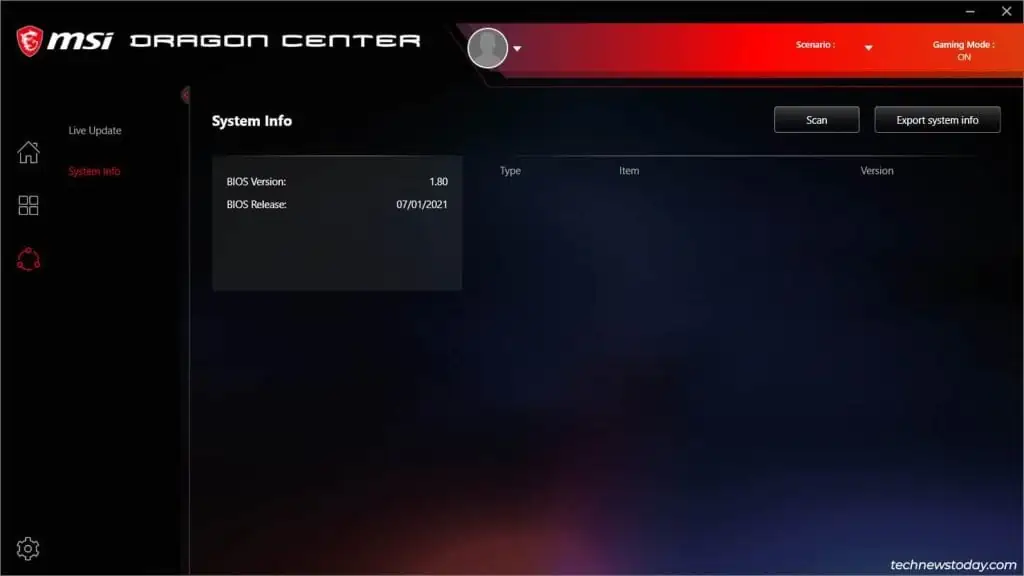
Checking MSI BIOS Versions Online
You might’ve noticed that different methods display the BIOS version in slightly different formats (1.80orE7C94AMS.180).
If you go to your motherboard’s support page on MSI’s site, you’ll find that the BIOS versions are listed in yet another format (e.g.,7C94v18).
you may compare the digits at the end (1.80 = 180 = 18) or the release date to identify your current BIOS version on that page.
